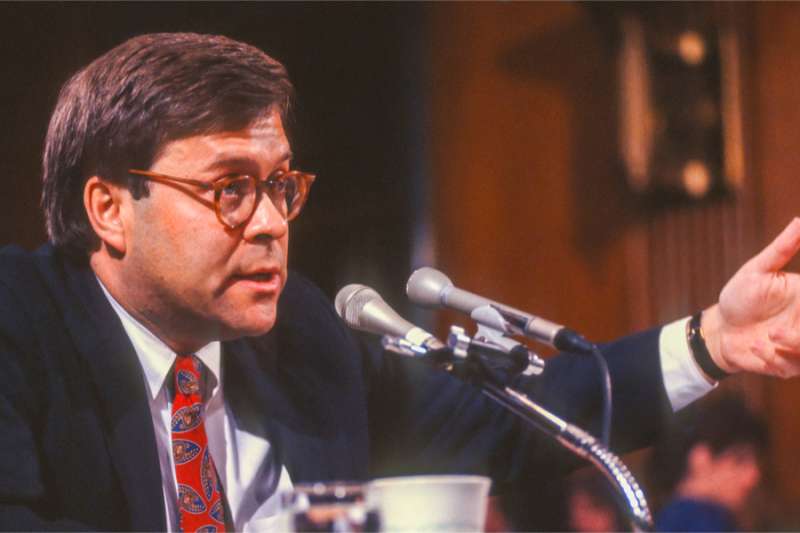William Barr was confirmed as United States attorney general on Thursday by a 54-45 vote in the Senate.
Barr, a practicing Catholic, previously served as attorney general under President George H. W. Bush from November of 1991 until January of 1993. He has since been employed in private legal practice.
President Donald Trump announced Barr’s nomination for the roll on Dec. 7 to replace Jeff Sessions, who resigned from the post following the November 2018 midterm elections.
Matt Whitlock has served as acting attorney general during the confirmation process.
When Barr was first confirmed as attorney general in 1991, he was approved by unanimous voice vote. That was not the case in 2019.
Barr’s nomination advanced out of committee on a 12-10 party-line vote.
A practicing Catholic and a member of the Knights of Columbus, Barr said in his confirmation hearings before the Senate Judiciary Committee that he did not believe his faith would hinder his ability to serve as an effective attorney general.
Sen. John Kennedy (R-LA) asked Barr about his religious faith, and questioned whether or not he thought this “disqualified” him from the position. Kennedy said that “some of (his) colleagues think it might,” referencing questioning by Sens. Kamala Harris (D-CA) and Mazie Hirono (D-HI) attacking a Catholic judicial nominee for his membership in the Knights of Columbus.
Barr told Kennedy that he planned to “render unto Caesar what is Caesar’s” if he were to be confirmed as attorney general.
Other recent candidates before the Senate Judiciary Committee have faced questions about their religious beliefs, concepts of sin, and membership in charitable and fraternal organizations.
Prior to the full confirmation vote on the floor of the Senate, several senators, including Sen. Rand Paul (R-KY) and Sen. Elizabeth Warren (D-MA), announced that they intended to vote against his confirmation.
Paul cited his opposition to Barr’s views on surveillance as reasons for voting against him. Paul was the sole Republican senator to vote against Barr on Thursday.
“He's been the chief advocate for warrantless surveillance of U.S. citizens,” Paul told POLITICO, adding that he believed the Fourth Amendment protects privacy rights.
Sen. Joe Manchin (D-WV), however, announced prior to the vote that he supported Barr’s confirmation “because he is well-qualified and I am confident that he will faithfully execute the duties of the chief law enforcement officer of the United States of America.”
Manchin, along with Sens. Doug Jones (D-AL) and Kyrsten Sinema (D-AZ) joined the rest of the Senate Republicans in voting in favor of Barr.
All other Democrats, as well as independent Sens. Angus King (I-ME) and Bernie Sanders (I-VT) voted against confirmation.

